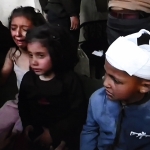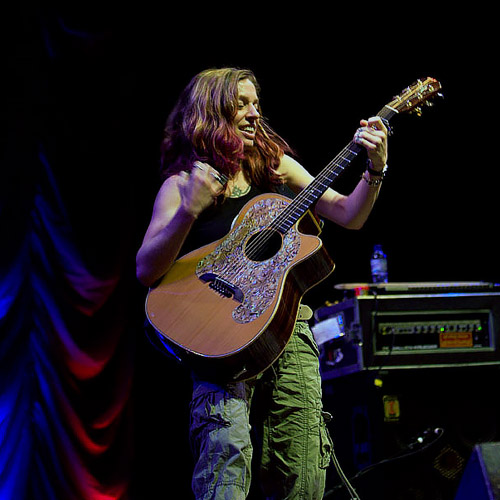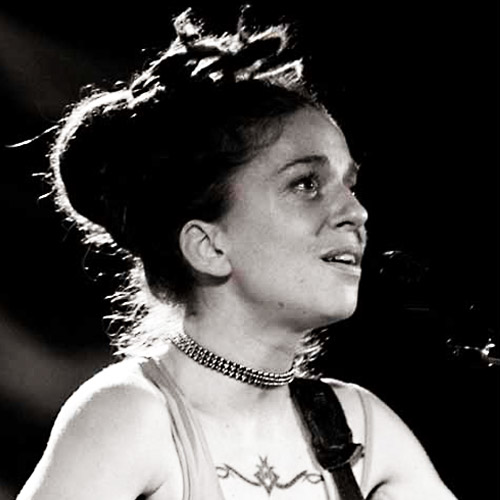Ani Di Franco In Conversation
How is an Ani text born? Do words come before or after the music? Do you write on paper or on a computer? Do you need to be alone and in silence? Can you write anywhere? And once you have the words down, do you show them to others and ask for suggestions? Do your lyrics change much from the very first creation to their ultimate form?
My favourite place to write is in a dressing room after a show, or at home at my kitchen table. Backstage in my dressing room, still pumped up from a performance, ideas often come to me. And later, in the solitude of my kitchen, I can rework and develop ideas for many uninterrupted hours. Incessant interruptions are part of a life of constant motion, however, and out of necessity I have learned to write in any circumstances, even surrounded by people socialising on a tour bus. Sometimes I bow out of a conversation to jot down an idea I know will be lost to me later. I work with pen and paper and usually have many pages of illegible, half scribbled-out chaos in my journals before a song or poem begins to take shape. All the editing and reworking I generally do alone, without consulting anyone or asking for suggestions. Writing is such a personal and subjective process that I approach it on my own, sometimes creating a bubble of aloneness in the company of others.
Do you like reading, and do you have time to read, what with rehearsing, touring and stuff? Have you writing influences and musical influences?
I love reading. I love having a book to escape into, or to keep me company in times of loneliness. Mostly I read novels, but sometimes books of poetry, and these influence my work, as does everything I come into contact with. My favourite poets lately are two Americans, Tony Hoagland and Carolyn Forche. I find them both inspirational in their bravery, and graceful in their marriage of the personal and political. Conversely, the novelists I find most inspiring seem to be those that are very poetic. Recently I have been enamoured with Amy Tan, Arundhati Roy, and Ann Patchett, though there have been many writers over the years who have inspired me.
Do prose interest you? What attracts you to poetry?
Prose is very difficult for me to write. After years of writing poetry in long skinny columns, complete sentences elude me. Besides which I like my language distilled. Words can be illuminating, but too many words can be blinding. I am attracted to poetry rather than prose not just for its potential musicality, but because every word has weight, and the process of distillation brings me closer to the essence of the truth.
Is there such a thing as ‘female writing’ as opposed to ‘male writing’? I’m not just talking about literature or poetry which deals with women issues, or feminist works.
I think there are absolutely such things as female writing and male writing, but I think it would be a mistake to assume that only women are capable of the former, and men the latter. In everything is a paradox, and I for instance am possessed of both feminine and masculine qualities. More important to the poem is the individual voice. Could a man have written ‘My IQ‘? What man? How old is he? What is his race? His nationality? His class status? His education? All these factors may be intrinsically different from my own, and would contribute to a different perspective.
You have become a real icon of indie music. But my question is: how often are you tempted by corporate power and profit? Do you miss them?
I do not dwell on the path I have chosen; the theoretical path of fame and fortune I may have forfeited in order to be independent. Instead I focus on my actual purpose on the planet, which is to do my art in a socially conscious and ethical way. I have met many people on this path who share my ideals, and I don’t regret a thing.
Page: 1 2
|
|

|

Depeche Mode |
LATEST GALLERY IMAGES

No Hamas Here 
Gaza is dying |
|
|






